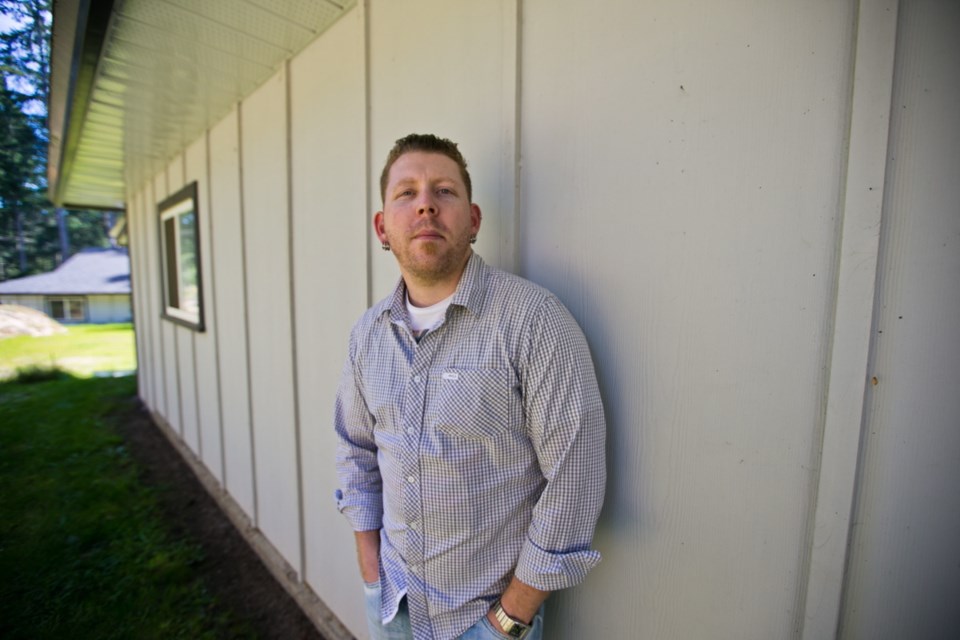Nick Perry urges workers young and old to stand up to their employers on matters of workplace safety.
Perry, now 31, almost lost his life in an accident at a Victoria lumberyard on Nov. 3, 2001. He tells workers about his accident and recovery in hopes that they will speak up about workplace hazards and prevent future deaths and injuries.
Perry’s talks are sponsored by WorkSafe B.C. and reflect the importance of speaking up about dangers that lurk in the workplace.
“I like to call myself a soldier for safety, because it’s really become my passion to talk to workers about their rights in the workplace and the responsibilities of employers,” said Perry, a Highlands resident, on Thursday.
Since it was established by the Canadian Labour Congress in April 1984, a national Day of Mourning has been held in cities across the country to commemorate workers who have been killed, injured or suffered illness as a result of their jobs.
Victoria’s ceremony was set for Centennial Square this morning, while many other events are being held across Canada on Sunday.
Over the past year, 149 workers were killed in B.C., including four on Vancouver Island.
At the time of his accident, Perry had been on the job for just six months.
He worked in the yard as a forklift operator. Unofficially, Perry kept an eye out for safety issues, and that’s how he saw the loosely stacked sheets of MDF — medium-density fibreboard — precariously stored three metres above the ground.
It was a Saturday and Perry was on overtime, having already put in a week’s work.
Despite being tired, he got a forklift and picked up 10 sheets of the slippery material. Then the forklift hit uneven ground and the load shifted.
He left the forklift to go for help, but the most experienced employee was busy at the cash register and the next in line was also tied up. So Perry turned to his friend who, like himself, had limited experience.
“We looked at the situation and looked at each other,” Perry said.
“We knew we had to get this stuff on the ground. He hopped on the forklift and I put my back to the forklift and was standing to the left-hand side of the forks.”
Perry stepped away and signalled to his friend to lower the load. Five of the 10 sheets slid off the forklift and hit Perry in the back. He pushed them off and moved a step forward only to get hit by the rest of the load. He was left with a severed spinal cord, crushed vertebrae and paralyzed legs.
He was flown to Vancouver General Hospital where he was in surgery for 13 hours. Doctors told him he’d never walk again.
Perry went through three years of rigorous rehabilitation and defied the doctors’ predictions by getting back on his feet.
“I gave my physio a hug,” Perry said of his first solo walk.
Perry now receives a disability pension, “but I’d rather have full use of my body than a pension.”
His key message to workers is not to be scared by safety issues, but to feel empowered.
“A lot of people tell me ‘I don’t think I could say that to my employer, I couldn’t stand up for my rights,’ ” Perry said.
But if you don’t do something, unsafe conditions may lead to you or someone else getting hurt, he said.
“We need to be more proactive as a society instead of being reactive.”



